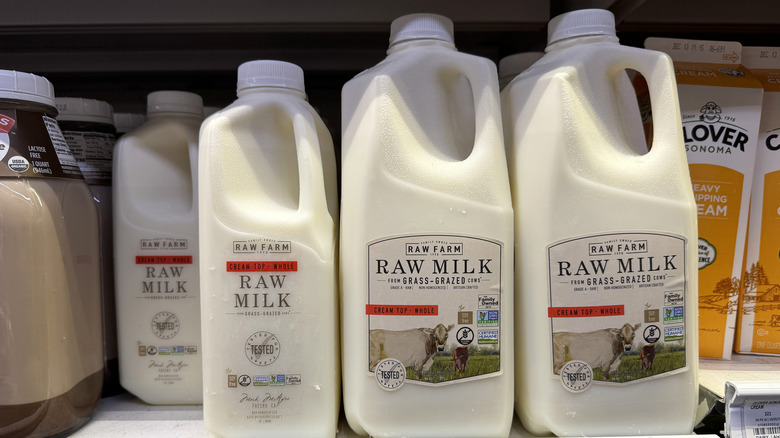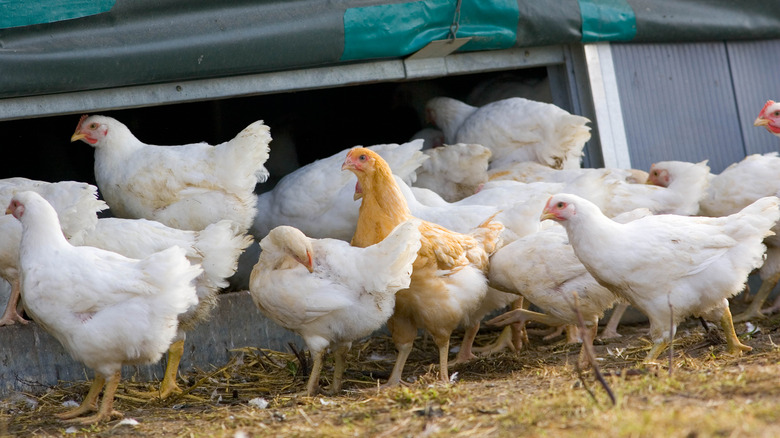The State Where Raw Milk Is Being Recalled Due To Bird Flu Virus Risks
From a recent outbreak associated with 160,000 pounds of ground beef to E.coli infected carrots, food recalls have been on the rise in 2024. The latest example is a batch of raw milk in California, which, according to the Department of Public Health, is the product of dairy herds in the area that tested positive for bird flu.
The specific milk being recalled comes from a batch of cream top, whole raw milk from Raw Farm, LLC of Fresno County. Milk with the lot code 20241109 and Best By date of 11/27/2024 printed on its packaging should be thrown out immediately, advises the DPH; quart and half-gallon sizes are part of this voluntary recall.
"No illnesses associated with this lot of raw milk have been reported," reads part of the announcement from the DPH. "Out of an abundance of caution, and due to the ongoing spread of bird flu in dairy cows, poultry, and sporadic human cases, consumers should not consume any of the affected raw milk."
People who did buy this milk can also return it to the store where it was purchased, and retailers have been advised to remove the raw milk from shelves. The DPH further noted, while no one has been reported ill from this raw milk outbreak, there have been reported human illness from bird flu in the past.
The state of bird flu this year
The strain potentially affecting this brand of raw milk in California is known H5N1. And while 29 people in the state have contracted bird flu, according to the CDC, none are currently associated with consuming raw milk.
However, the FDA's general recommendation is not to consume raw milk because it tends to have more disease-carrying pathogens than pasteurized milk. The FDA also dispels many of the myths associated with it, like it is nutritionally superior, or an immune system building food.
55 cases of bird flu in humans have been reported across the country this year but none have occurred through person to person contact. The states where the illnesses were reported other than California include Colorado, Michigan, Missouri, Oregon, Texas, and Washington.
The CDC rates the risk of exposure to the average consumer as low, but that naturally goes up with exposure to livestock, wild or dead birds, or places that might've been contaminated by such animals.

